Kind-hearted people in and around Inverurie have helped a UK-wide charity save hundreds of hens from the slaughterhouse.
Like-minded folk in the Inverness area also stepped in to rescue lots of chickens from a grisly fate.
All of these birds are now enjoying a new lease of life in loving north and north-east homes.
They’ve joined more than a million birds rehomed by UK charity so far
They met their new owners for the first time at collection days organised on behalf of the British Hen Welfare Trust (BHWT).
The charitable trust has homed more than a million hens around the UK since 2005.
There were 250 looking for kindly new owners at Meikle Wartle, near Inverurie.
A similar event at Balvraid Farmhouse, Nairnside, Inverness, aimed to find homes for hundreds more hens.
Rehomings can only go ahead thanks to the hard work of site hosts and enthusiastic teams of volunteers.
Louise Aitken is a co-ordinator for BHWT in the north-east.
She said “amazing volunteers” come from far and wide to help out at events.
The latest one at Meikle Wartle saw another 250 hens finding new homes.
Hens are past their egg-laying peak
“We’ve had up to 700 in a day before so it was a smaller event this time, said Louise, who works as a teacher.
She also told us she kept 35 “layers” at her home in Aberdeenshire.
And she said she became a volunteer for the trust after taking in some of its hens herself about seven years ago. She has helped to find homes for thousands of others since then.
The “quiet” hens finding new homes have past their peak egg production, she said.
Commercial egg producers no longer want them. If the trust didn’t step, in the birds would be slaughtered.
Among those giving a home to some hens in the run-up to Christmas was Martin Greenhough, of Hatton, near Ellon.
He and his wife, Elizabeth, came away from Meikle Wartle with 10 birds.
Sadly, one of them was weaker than the rest and didn’t survive.
Coming back for more
But the rest are all thriving and laying eggs for the Greenhoughs.
The couple are regular hen re-homers and now have more than 30 birds.
Most of these were picked up at BHWT events and Martin told us he’d be back for more.
He added: “We sell the eggs to friends an family. “We’ve had hens since about 2014-16.”
It was Elizabeth’s idea to keep poultry but she soon discovered an allergy when cleaning out the coups.
“It’s nothing too serious,” Martin said, adding: “I’ve ended up mucking out the hens.
“And every time there is a rehoming event we take in some more.”
There’s quite a menagerie building up at the Greenhoughs’ “domestic farm”.
David and Elizabeth keep coos, goats, rheas, horses and sheep too
As well as hens, they keep Highland cattle, pygmy goats, horses, rheas and sheep. They’ve previously kept alpacas.
With plenty going on at home, it’s a wonder that Martin also has two part-time jobs.
David Killingback, of Bridge of Don, was at Meikle Wartle to pick up more hens for the farm he works at, Hillhead, in Bieldside, Aberdeen.
He was accompanied by his wife, Louise, and two sons, Andrew and Keith.
The farm’s 10 new feathery recruits are beyond their prime for egg-laying.
But they will live out the rest of their days in a nice environment, David said.
He added: “It’s all about giving them a good home for a wee while really.
“They have grass outside and a shed to huddle together to keep warm in the cold weather.”
Hillhead’s hen count is now up to 24, of which 15 are rescued birds.
Can you still get hens?
Upcoming “hen adoption” events include one for 190 birds in Dunning Glen, in Perth and Kinross, on Saturday January 18.
There is another in Stonehaven, seeking homes for 185 birds, on January 19.
The next event at Meikle Wartle is likely to take place around the start of March.
You can keep track of dates and sign up via the BHWT website at bhwt.org.uk
Those who have previously adopted a hen through the trust, including the King, will already have an adopter ID. They just need to enter a few details to reserve more hens.
New adopters must have accommodation for hens sorted in advance.
BHWT has a guide for happy hen-keeping on its website.
What budding hen owners need to know
As part of the adoption process, you’ll need a debit or credit card to make a donation.
And if you’re a new BHWT adopter, you’ll also need a photo of your hen house and run.
There are, of course, a few more rules and these are explained on the website.
The minimum number of hens you can reserve is three because the birds are sociable and like to be part of a flock.
BHWT will allow you to adopt two if you already have hens or a specific type of coop.
The website adds: “We cannot guarantee the future laying capability of any individual hen.
“But most will carry on laying provided you feed them with a high quality feed.”
BHWT chief executive Jane Howorth told us the Devon-based trust is rehoming 60,000 hens a year, om average.
But last year it found new owners for around 64,000 birds.
And it rehomed its millionth hen in August 2024, when the King took it for Highgrove House.
“We’ve had an absolutely fantastic time across Scotland during the past 12 months, Jane said.
She added: “We’ve been up and running in Scotland for 15 years and now have several teams up there dedicated to helping hens.”
Rehoming events held around the country, like those in Meikle Wartle and Nairnside, last month, are rescuing hundreds and sometimes thousands of hens at a time, she said.
Budding new owners generally book online, and the trust’s local teams can then speak to them to “make sure they know exactly what they are taking on,” the BHWT CEO said.
The trust relies on an “incredible” network of more than 1,400 volunteers and 48 rehoming sites around the UK to carry out its rescue mission.
Shock TV documentary spurred Jane into action
Jane founded the charity 20 years ago, as the Battery Hen Welfare Trust, after a shocking TV documentary.
Panorama’s expose on the living conditions of domestic livestock, including caged chickens, inspired her to dedicate her future to helping hens.
She set up the trust after placing an advert in a local paper seeking new hen owners.
It had thousands of responses, showing considerable demand for the birds.
In 2016 Jane was made an MBE in recognition of her tireless devotion to saving hens.
And in 2008 Jane’s appearance on Channel 4’s Jamie’s Fowl Dinners, alongside celebrity chef Jamie Oliver, sparked a surge in interest in her rehoming crusade.
Meanwhile, the BHWT was named JustGiving’s charity of the year in 2018.
The trust has worked closely with leaders in the egg industry to design and develop its rehoming model.
Celebrity patrons include Kate Humble, Jimmy Doherty, Amanda Holden, Bob Mortimer, Pam Ayres and Jamie Oliver.
Explaining his interest on the charity’s website, Jamie says: “For me, part of being a meat-eater is all about respecting the animals that are bred for our food.
“It’s important for them to be cared for and well treated.”
BHWT is currently trying to raise another £3,500 which will help to support more teams of volunteers.
It’s recent appeal raised £19,000, giving it more than enough for two new teams.
The trust has a total fundraising target of £22,500. This, together with an offer of match funding worth £7,500, will support two more teams.
Gallery: Hundreds of birds rehomed at ‘hen-tastic’ Aberdeenshire event
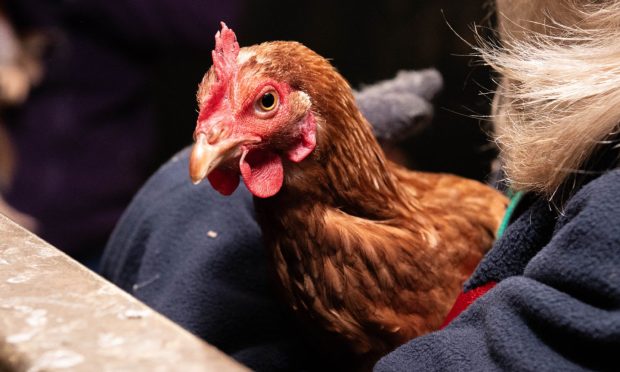
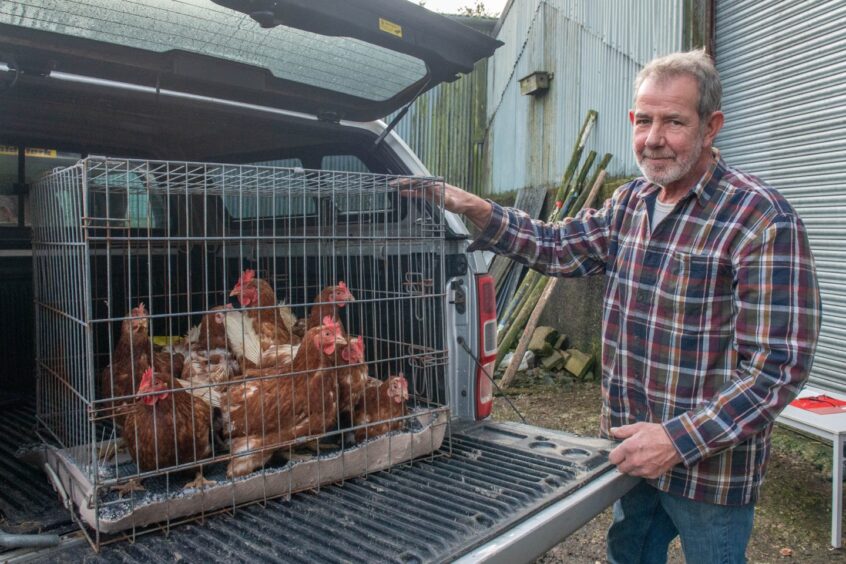
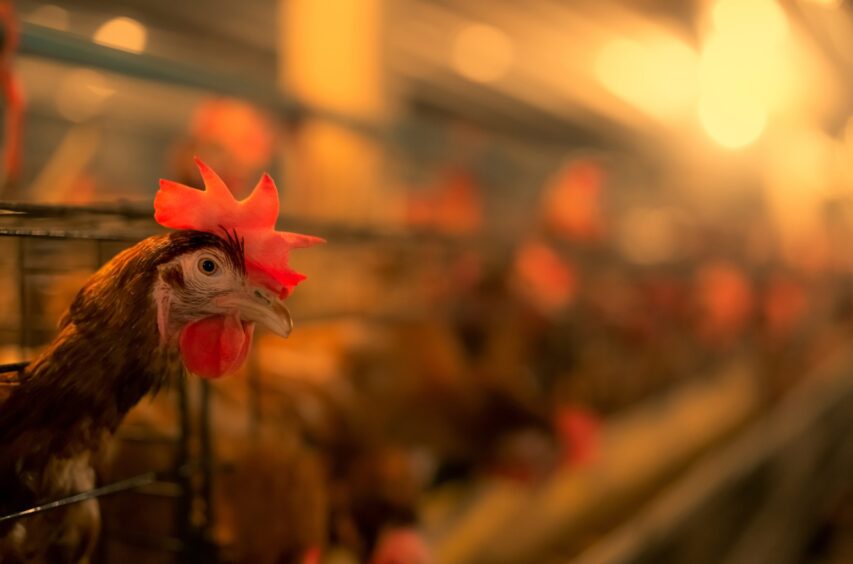
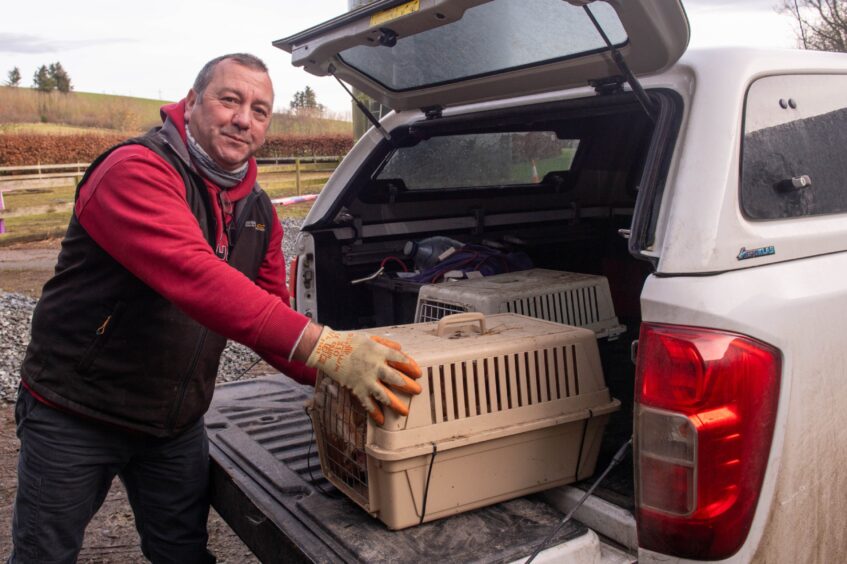
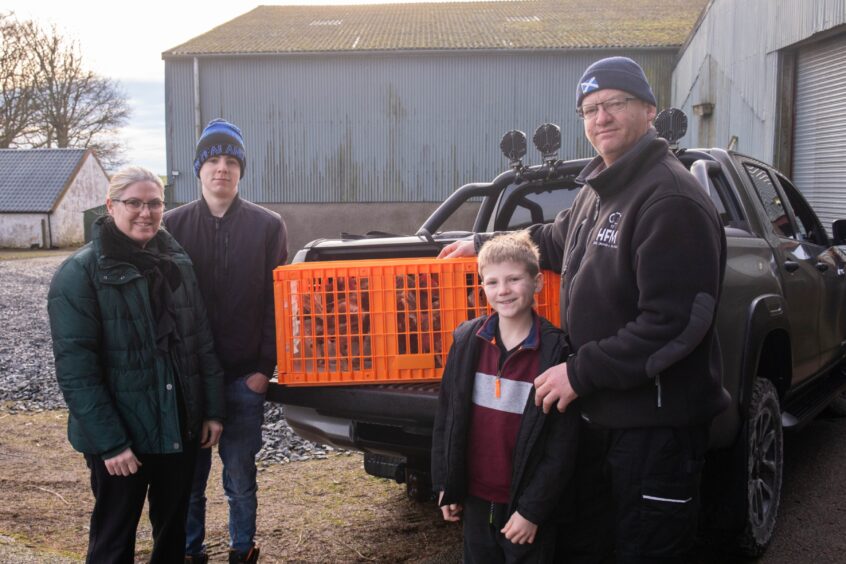
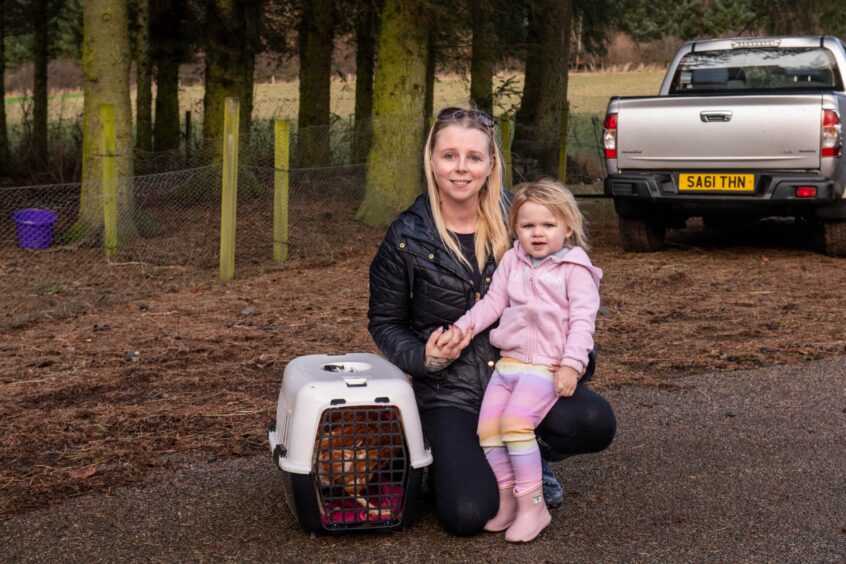
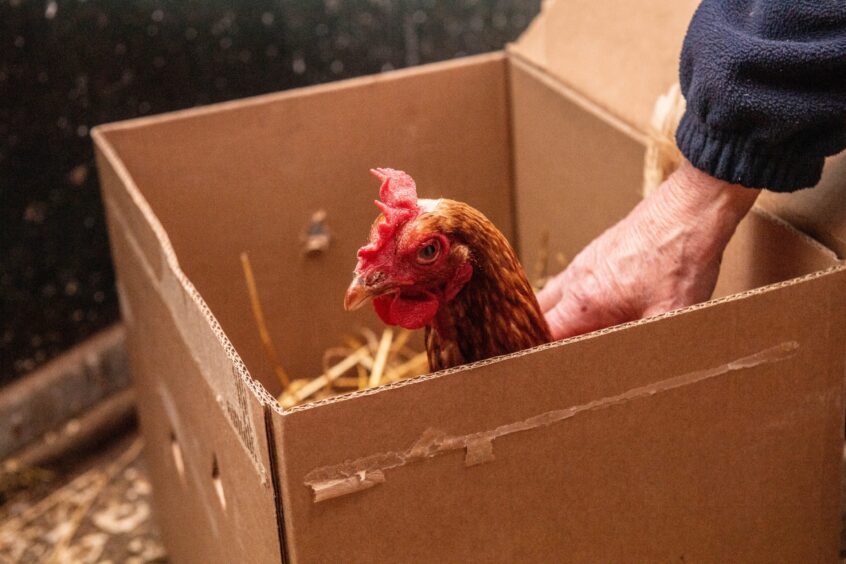
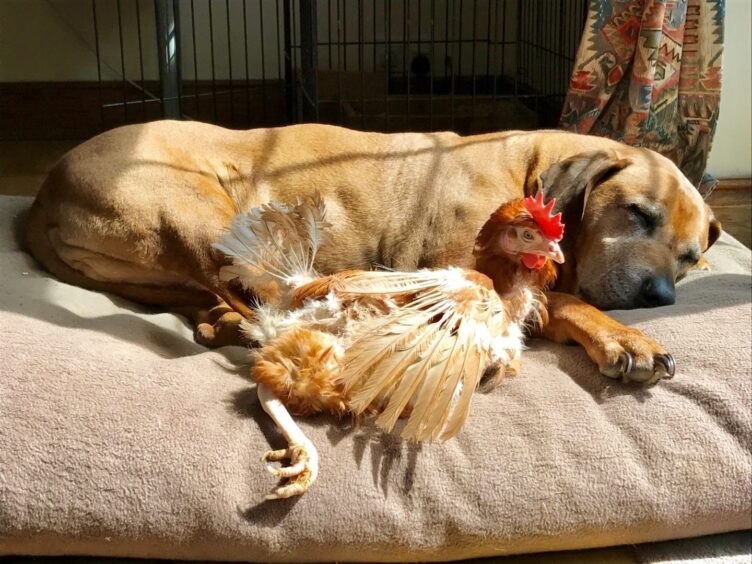
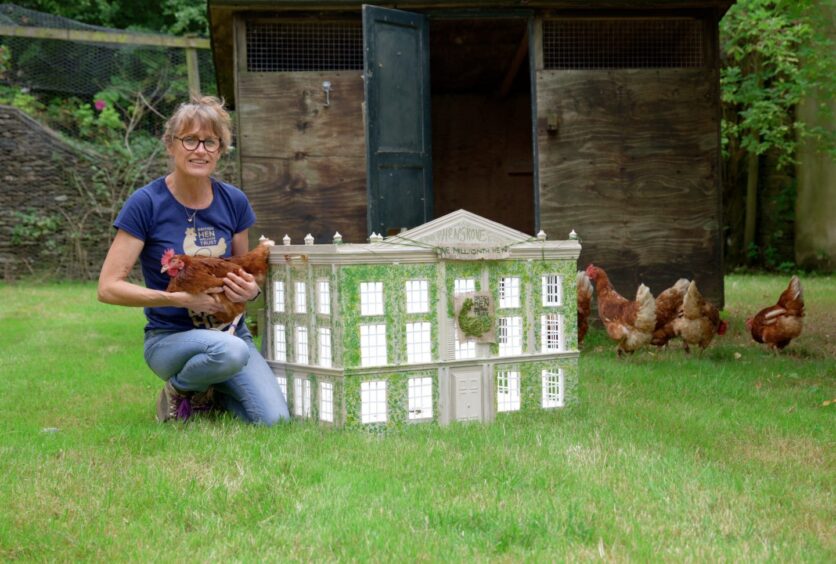
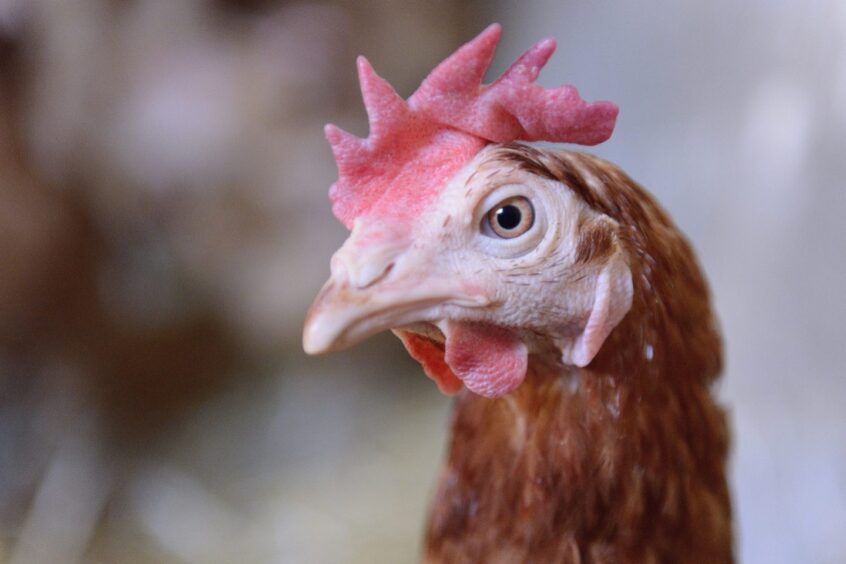
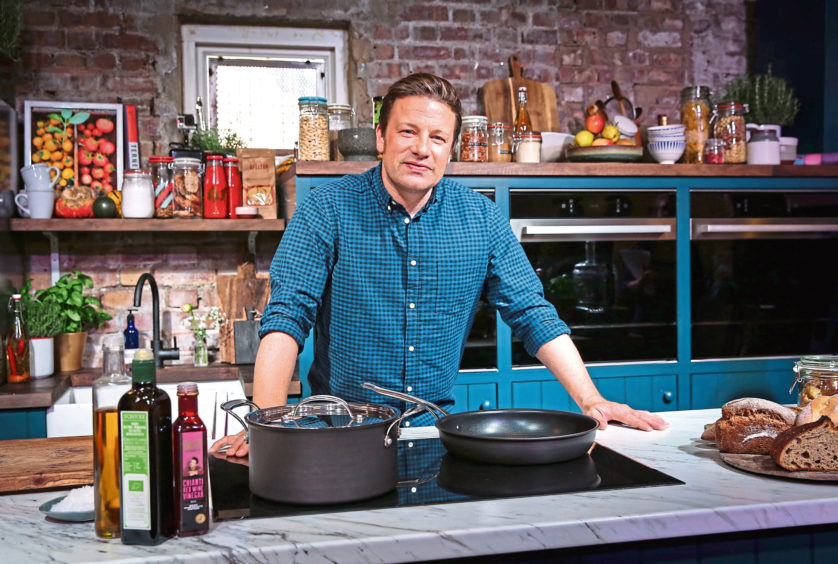
Conversation